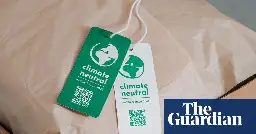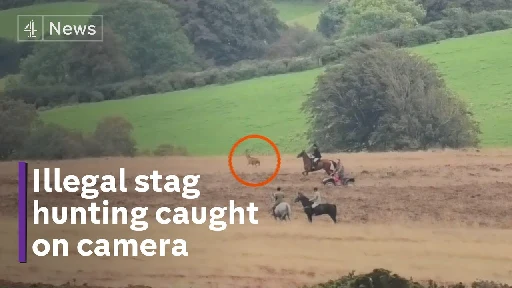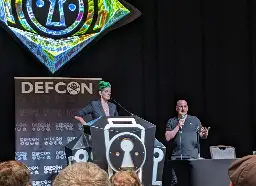I work with Zendesk and this doesn’t surprise me at all - the product is janky and they’re much more interested in sales and squeezing a few more $$s from their clients than improving it or fixing issues
I use Nextcloud to sync a huge music collection and it works great - I was kinda surprised
I run it on an underpowered NUC and it behaves beautifully
you should probably use a VPN if you’re uploading because it’s trivial for law enforcement to track - there’s no Onion routing or anything like that, and anyone can register and search
but for downloading / leeching I wouldn’t be as worried because very generally speaking people aren’t harassed for downloading, only sharing
it’s good but the controls are just as fiddly as back in the day - there’s a new control scheme but it’s janky and difficult
the new graphics and lighting effects also look great but sometimes areas are so dark they hide things you need to discover
but, I don’t think OpenLara is going to fix either of those anyways
yep came here to say NixOS - once I was used to it, the advantages for programming are immense. I commit my shell.nix to Git and use Lorri to automagically install the right environment tools and it feels magical being able to work on multiple machines and never encounter dependency oddness
it isn’t so loud that other people would notice, i don’t think - and usually just a bit of readjustment of my position is enough to unblock the vents
don’t let me dissuade you from buying the best laptop i’ve owned!
the art in question was not damaged
if i have it on a table, it’s fine, mostly silent. if i have it on my lap blocking the vents then it can get noisier and hotter pretty fast
I run NixOS on my Ryzen Framework 13 and it works flawlessly, including fingerprint reader. I run KDE now but I’ve also used Gnome with no issues.
I used this nixos-hardware module for some of the fancier hardware tweaks I don’t really understand: https://github.com/NixOS/nixos-hardware
as the inverse to this, I like to be reminded how much Windows sucks so I don’t feel any desire to reinstall it
Same with beer. Fortunately there’s a great website at https://barnivore.com which lists alcoholic drinks from tonnes of manufacturers and details their vegan-or-not-ness. An invaluable resource for veegs who like booze.
For the unaware, Navidrome is a very slick and fast Subsonic-compatible music streaming server, which works excellently with large libraries. I’ve tried a bunch of options for streaming my music files over my local network and Navidrome has been by far the nicest. I use it with Tailscale and the Substreamer client on my iPhone so I can play my tunes when out and about.
I have a few personal domains registered with Njalla and have for years with no issues. They're not hosting anything shadier than a Jellyfin login (on a non-Njalla server) - and so I'm not worried about getting denied access. And I like not having my real details in the WHOIS.
my LG TV was up to date but I still managed to root it just recently, via this method: https://github.com/throwaway96/dejavuln-autoroot
it's well worth it - rebinding the remote alone is sweet AF, plus the ad-free and sponsor-blocking YouTube is great
with respect to accuracy / pendantry, he didn't chant, or start chanting anything - he shouted 'allahu akbar'
Use https://freetar.de as your front-end to Ultimate Guitar - much nicer
you ask the waiter if they can move you to another table
for you, maybe
for the planet, nuh-uh
good bot
Products and services billed as climate neutral, biodegradable or eco must provide proof, with carbon schemes banned as evidence

Terms such as “climate neutral” or “climate positive” that rely on offsetting will be banned from the EU by 2026 as part of a crackdown on misleading environmental claims.
On Wednesday, members of the European parliament [MEPs] voted to outlaw the use of terms such as “environmentally friendly”, “natural”, “biodegradable”, “climate neutral” or “eco” without evidence, while introducing a total ban on using carbon offsetting schemes to substantiate the claims.
Under the new directive, only sustainability labels using approved certification schemes will be allowed by the bloc. It comes amid widespread concern about the environmental impact of carbon offsetting schemes, which have often been used to justify labelling products “carbon neutral”, or imply that consumers can fly, buy new clothes or eat certain foods without making the climate crisis worse.
“This new legislation puts an end to misleading advertising for supposedly environmentally friendly products and thus enables consumers to make sustainable choices,” said Anna Cavazzini, the Green MEP and chair of the Committee of the Internal Market and Consumer Protection.
“I am particularly pleased that claims such as “climate-neutral” or “climate-positive”, which are based on CO2 offsetting, have been completely banned from the internal market. Investments by companies in climate protection projects are welcome and of course they can still be communicated,” she said. “However, it should no longer appear that planting trees in the rainforest makes the industrial production of a car, the organisation of a soccer World Cup or the production of cosmetics climate neutral. This deception is now a thing of the past. This is a great success for the environment, the climate and consumers.”
The directive comes after months of negotiations over how environmental claims will be regulated in the EU, with a deal reached in September that was approved by law makers on Wednesday. Member states now have two years to introduce the new rules. Drop carbon offsetting-based environmental claims, companies urged Read more
In January, the Guardian published a joint investigation into forest carbon offsets approved by the world’s leading certifier that big corporations used for their sustainability commitments, finding more than 90% of offsets from a large sample of projects to be worthless.
Environmental NGOs have raised concerns about claims based on offsets, including the 2022 World Cup in Qatar which was advertised as a “carbon neutral” event.
“This agreement is a big step towards more honest commercial practices and more informed European consumers. The European Union is taking leadership in combating greenwashing,” said Lindsay Otis, a policy expert on global carbon markets at CMW. “Carbon neutrality claims have been shown to be unintelligible to consumers, and they must stop. Today marks the end of outlandish and baseless advertisements that tell European consumers that they can take carbon-neutral flights, wear carbon-neutral clothes, and eat carbon-neutral food.”
hero
highly recommend the Private Eye podcast (and magazine, but the podcast is more digestible): https://www.private-eye.co.uk/podcast

YouTube Video
Click to view this content.
> Hunting stags with packs of dogs has supposedly been illegal for almost 20 years – although there are some exemptions. > However – despite the ban – hunts are continuing with impunity. > We’ve been sent footage of stags being chased on National Trust land involving people on quad bikes as well as horses. > While on another hunt – it’s one of the hounds which appears to be at risk. > There is some distressing footage in this story.
Greater Manchester mayor urges Rishi Sunak to listen to leaders in north before making decision on high-speed rail project

The mayor of Greater Manchester has urged ministers to talk to leaders in the north of England before scrapping HS2 and leaving it with “Victorian infrastructure” for the rest of the century.
Andy Burnham said he and the leader of Manchester city council, Bev Craig, would be writing to Rishi Sunak to say that while a rephasing of the rail project may be possible, cancelling the section to Manchester would create “a north-south chasm”.
“You really should not take this decision without listening to the voice of people here,” Burnham told BBC Radio 4’s Today programme.
Amid significant political anger about the much-trailed move, including within the Conservative party, it remains unclear when any decision might be taken.
Sunak and Jeremy Hunt, the chancellor, are expected to decide this week, with an announcement pencilled in for Friday.
However, northern Tories believe that scrapping the northern leg before the Conservative party conference in Manchester next weekend would be a huge political embarrassment, and are urging Sunak to wait while they push for a compromise solution.
Asked what would happen to the parallel Northern Powerhouse Rail project if HS2 ended at Birmingham, Burnham said: “Scrapping HS2 rips the heart out of Northern Powerhouse Rail. Basically it would leave the north of England with Victorian infrastructure probably for the rest of this century.
“If we’re trapped with that old infrastructure and the southern half of the country gets new lines, that is a recipe for the north-south divide to become a north-south chasm, the very opposite of the levelling up that we were promised in this parliament.”
In his letter to Sunak, Burnham said he and Craig would be saying: “Please at least do us the courtesy of meeting us and discussing this issue before you take any decision.”
He continued: “It’s frankly disrespectful to the people of the north of England that our voice has not been heard at all in this conversation that seems to be going on within government. This is a decision of epic proportions for our part of the world and we should be heard before it’s taken.
The second thing we’ll be saying in the letter is as part of any discussion, we would say whatever you decide to do, please don’t scrap it.”
If changes had to be made, Burnham said, he could be open to a possible rephashing of the northern section so Northern Powerhouse Rail was built first.
He said: “That is something we could have a discussion with the government about, but scrapping it will basically take everything off the table, the east-west line, Liverpool to Leeds as well.
“And that will be a disaster for people here in the north of England. It would leave us stuck with that Victorian infrastructure that causes so much chaos on our railways day after day.”
Asked about the plans for HS2 on Sky News, the housing minister, Rachel Maclean, was able to say only that there was “no announcement at the moment”.
“The focus is on delivering HS2,” she said, adding: “It’s not for me to say – I’m the housing minister.”
Expected new standard means patients who receive urgent referral should have diagnosis in 28 days

Patients with suspected cancer may have to wait longer to get a diagnosis under government proposals due this week.
The target that all patients should see a specialist within two weeks of an urgent referral for cancer tests by a GP is expected to be scrapped under NHS England plans to streamline cancer targets.
Ministers have been consulting on the proposals to replace the nine existing cancer targets with just three.
Under a new “faster diagnosis standard”, three-quarters of patients should have a diagnosis or be told they do not have cancer within 28 days. Once diagnosed, patients should receive their first treatment within 62 days from referral or 31 days after the decision to treat.
That standard would replace the nine existing cancer targets, including the two-week wait between a GP referral and first consultant appointment; a one-month wait for care once a decision has been made to offer treatment for cancer such as chemotherapy, radiotherapy and surgery; and a two-month wait from the urgent GP referral to a first treatment of cancer.
The latest figures show that only 59% of patients in England started their first cancer treatment within two months of an urgent GP referral, well short of the 85% target. Only 62% of patients were seen within two months of a positive result from a national cancer screening test, compared with the 90% target.
When a consultation on the proposals began last year, the NHS highlighted that the current two-week target set no expectation of when patients should receive test results or have a confirmed diagnosis.
Speaking on BBC Radio 4’s Today programme, Pat Price, a visiting oncology professor at Imperial College London and co-founder of the Catch Up with Cancer campaign, accused ministers and NHS leaders of “fiddling around” in the middle of an NHS crisis and of watering down the targets.
“Changing the targets won’t help patients, unless we can treat patients better and quicker. And that means now increasing treatment capacity,” she said.
On breast cancer, the target is that 93% of women should be seen in a one-stop clinic in two weeks, but the figure is now 74%. Price said: “The target we think is only going to be 75% in 28 days – that’s actually worse. Is it really the best that government and senior NHS leaders can do is fiddle around with targets in the middle of this crisis?”
The BBC reported that the outcome of the consultation was expected to be announced within days, and implementing the changes would be subject to final approval by the health secretary, Steve Barclay.
Barclay said on the Today programme that the proposals were designed to improve outcomes and were what the sector wanted.
He said: “Any changes will be those where it’s been requested by clinical specialists within the cancer field and would be done in consultation with the leading cancer charities. The consultation has been about working with consultants, clinical leaders, as to what drives the best outcomes, what is the way of getting the best survival rates.”
Barclay said there had been a 28% increase in urgent GP referrals for suspected cancer and £2.3bn investment in 160 community diagnostic centres, with 114 of those open.
Prof Sir Stephen Powis, the NHS national medical director, said: “These proposals were put forward by leading cancer experts and have the support of cancer charities and clinicians. By making sure more patients are diagnosed and treated as early as possible following a referral and replacing the outdated two-week wait target with the faster diagnosis standard already being used across the country, hundreds of patients waiting to have cancer ruled out or diagnosed could receive this news faster.
“The proposals will also remove the need for unnecessary outpatient appointments in order to comply with waiting times rules, allowing more patients to be referred ‘straight to test’ and the wider deployment of diagnostic technologies including artificial intelligence.”
Dr Tom Roques, a vice-president of the Royal College of Radiologists, said simplifying the targets would make it easier for cancer teams to deliver care, but warned targets were no panacea.
“It’s important to remember that the targets are just a tool to try and improve care – the targets achieve nothing on their own. And the real need is investment in workforce, in newer ways of working, so we can improve the situation on the ground, which I think if you ask any cancer team is just not good enough at the moment for the patients,” he said.
“I think one of the problems that we have with targets as a whole is that they often focus on the process rather than the outcomes that are important to patients. So if you look at the old two-week target to see a doctor, you may not need to see a doctor to be diagnosed or not diagnosed with cancer, you may need teledermatology to assess your skin lesion and tell you whether it’s cancer or not. You may need to have an endoscopy test to quickly look and see whether you’ve got bowel cancer, and an artificial focus on ‘you must see a doctor by 14 days’ may not be the best way to get patients quickly through the system.”
Keir Starmer accused the government of “moving the goalpost” on cancer targets. “I want swifter diagnosis, of course I do – both for the individuals concerned and obviously for the health service,” the Labour leader said on a visit to Scotland.
“Under the last Labour government, we had targets, we hit those targets; we didn’t walk away when the going got tough,” he said. “With this government, it’s targets that they’ve repeatedly failed to hit. And now what they’re doing is moving the goalposts and even where they’re keeping targets [in place] after this streamlining, there’s targets they’re still not hitting.”
‘It’s like Tor and IPFS had sex and produced this thing’

DEF CON Infosec super-band the Cult of the Dead Cow has released Veilid (pronounced vay-lid), an open source project applications can use to connect up clients and transfer information in a peer-to-peer decentralized manner.
The idea being here that apps – mobile, desktop, web, and headless – can find and talk to each other across the internet privately and securely without having to go through centralized and often corporate-owned systems. Veilid provides code for app developers to drop into their software so that their clients can join and communicate in a peer-to-peer community.
In a DEF CON presentation today, Katelyn "medus4" Bowden and Christien "DilDog" Rioux ran through the technical details of the project, which has apparently taken three years to develop.
The system, written primarily in Rust with some Dart and Python, takes aspects of the Tor anonymizing service and the peer-to-peer InterPlanetary File System (IPFS). If an app on one device connects to an app on another via Veilid, it shouldn't be possible for either client to know the other's IP address or location from that connectivity, which is good for privacy, for instance. The app makers can't get that info, either.
Veilid's design is documented here, and its source code is here, available under the Mozilla Public License Version 2.0.
"IPFS was not designed with privacy in mind," Rioux told the DEF CON crowd. "Tor was, but it wasn't built with performance in mind. And when the NSA runs 100 [Tor] exit nodes, it can fail."
Unlike Tor, Veilid doesn't run exit nodes. Each node in the Veilid network is equal, and if the NSA wanted to snoop on Veilid users like it does on Tor users, the Feds would have to monitor the entire network, which hopefully won't be feasible, even for the No Such Agency. Rioux described it as "like Tor and IPFS had sex and produced this thing."
"The possibilities here are endless," added Bowden. "All apps are equal, we're only as strong as the weakest node and every node is equal. We hope everyone will build on it."
Each copy of an app using the core Veilid library acts as a network node, it can communicate with other nodes, and uses a 256-bit public key as an ID number. There are no special nodes, and there's no single point of failure. The project supports Linux, macOS, Windows, Android, iOS, and web apps.
Veilid can talk over UDP and TCP, and connections are authenticated, timestamped, strongly end-to-end encrypted, and digitally signed to prevent eavesdropping, tampering, and impersonation. The cryptography involved has been dubbed VLD0, and uses established algorithms since the project didn't want to risk introducing weaknesses from "rolling its own," Rioux said.
This means XChaCha20-Poly1305 for encryption, Elliptic curve25519 for public-private-key authentication and signing, x25519 for DH key exchange, BLAKE3 for cryptographic hashing, and Argon2 for password hash generation. These could be switched out for stronger mechanisms if necessary in future.
Files written to local storage by Veilid are fully encrypted, and encrypted table store APIs are available for developers. Keys for encrypting device data can be password protected.
"The system means there's no IP address, no tracking, no data collection, and no tracking – that's the biggest way that people are monetizing your internet use," Bowden said.
"Billionaires are trying to monetize those connections, and a lot of people are falling for that. We have to make sure this is available," Bowden continued. The hope is that applications will include Veilid and use it to communicate, so that users can benefit from the network without knowing all the above technical stuff: it should just work for them.
To demonstrate the capabilities of the system, the team built a Veilid-based secure instant-messaging app along the lines of Signal called VeilidChat, using the Flutter framework. Many more apps are needed.
If it takes off in a big way, Veilid could put a big hole in the surveillance capitalism economy. It's been tried before with mixed or poor results, though the Cult has a reputation for getting stuff done right. ®